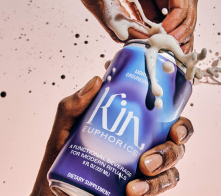In the ever-evolving landscape of digital advertising, engaging customers and driving conversions depends on the strength of your ad creative. Compelling and personalized ad messaging is the key to capturing your target audience’s attention and fostering brand loyalty.
But how can you create ad campaigns that truly resonate with customers? Look to a powerful source of customer insights: first-party data. Let’s explore what makes first-party data your best tool in the fight for customer attention — and how to leverage it to create more effective ads.
Understanding First-Party Data
First-party data is information a company can collect from their own sources. Examples include data gleaned from website and app visits, past purchases, and social media interactions. First-party data is valuable because it provides insights about real customers who are interacting with your brand.
Move to Using First-Party Data for Ad Creatives: The Advantages
We’ve already touched on some of the advantages of using first-party data to shape your ad campaigns, but here are some of the key benefits, summarized:
- Increased marketing performance: When you create ads with messaging that resonates with your real customers, you’re likely to see more clicks, more conversions, and overall improved campaign performance.
- Competitive advantage: Chances are, some of your competitors are using the same stale third-party data sets. With first-party data, you have fresh insights that are unique to your brand.
- Personalized experiences: Knowing your audience on a deeper level allows you to create tailored experiences based on users’ actions and preferences.
- Standardization: When you can identify common threads across your customer base, you can spend less time iterating and more time executing with proven ideas.
- Cost-effective: Customer retention is more cost-effective than new customer acquisition. Maximize your return on ad spend by creating more effective campaigns that re-target your existing customers.
Steps for Using First-Party Data to Make a Better Ad Creative
Step One: Determine the Data’s Use
Begin by defining the key insights you need from your first-party data to support your campaign goals. For example, if your objective is to increase customer retention, find first-party data that helps you understand customers' past purchase behaviors, preferences, and interests to create personalized, retention-focused ad creative.
Step Two: Create a Plan
Outline the data collection methods, tools, and technologies you’ll use to gather the information you need about your audience. For a well-rounded view of your customers, integrate data from various sources, including website interactions, email subscriptions, and purchase history.
Step Three: Be Transparent About How You’re Gathering Data
Today’s consumers don’t just value transparency — they demand it. Let customers know about your data collection methods, ask for consent to use their data, and make it clear that you’re using it to deliver better ad experiences and personalized content.
Step Four: Test, Adjust, Retest
Create different versions of your ads to reach different segments of your audience. Continuously optimize your ad creative by using A/B testing, monitoring ad performance, and iterating according to your findings.
Conclusion
Harnessing data is the key to producing more captivating ad creative and executing more effective ad campaigns. If you’re pivoting away from third-party data and want to invest in an effective first-party approach, check out Retention.com’s powerful solution for reaching more customers with customized messaging.

